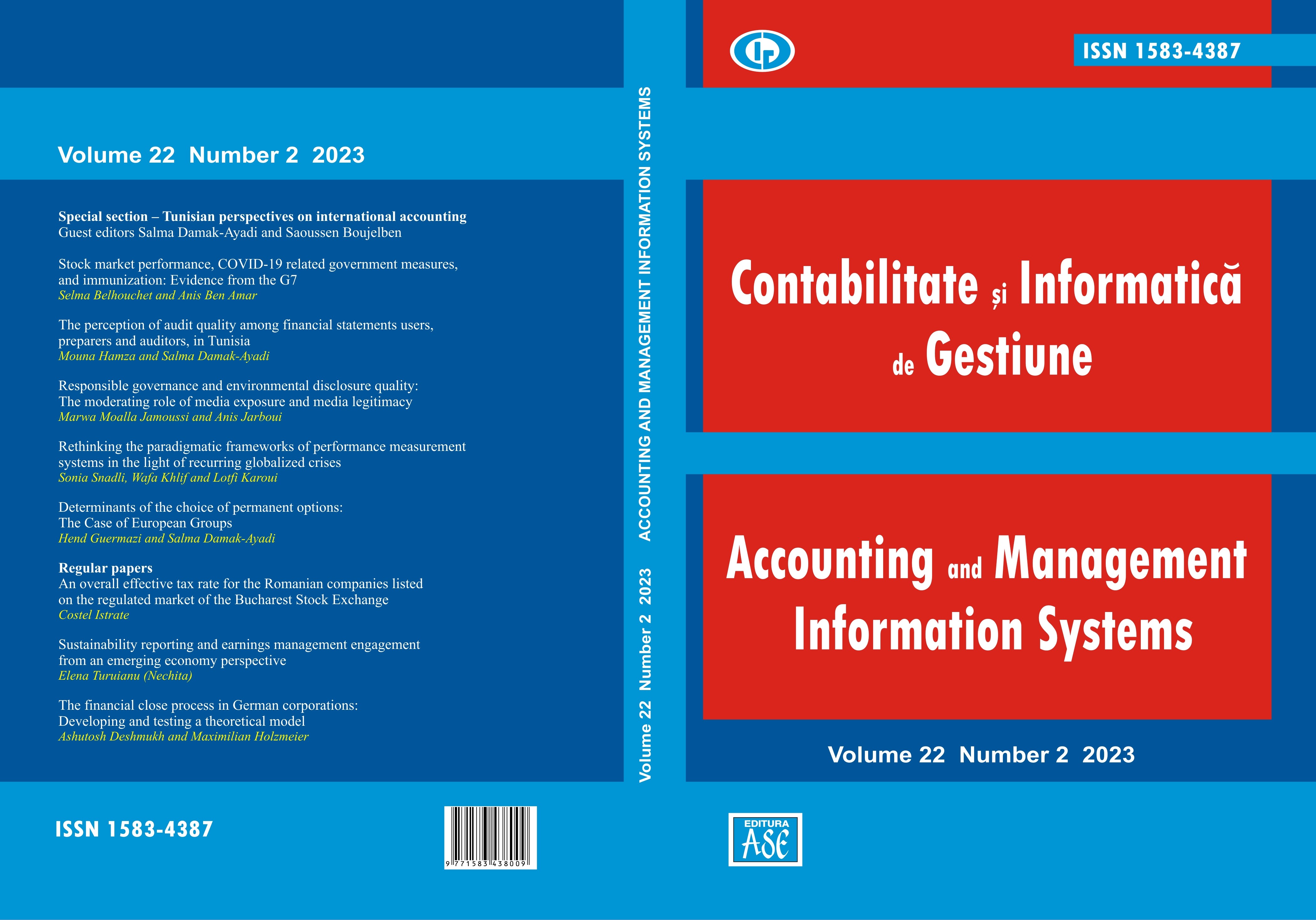Stock market performance, COVID-19 related government measures, and immunization: Evidence from the G7
Stock market performance, COVID-19 related government measures, and immunization: Evidence from the G7
Author(s): Selma Belhouchet, Anis Ben AmarSubject(s): Health and medicine and law, Financial Markets, Accounting - Business Administration
Published by: EDITURA ASE
Keywords: stock market performance; COVID-19; containment measures; vaccination; G7 stock market returns; panel pooled OLS;
Summary/Abstract: Research Question: What impact has the COVID-19 transmission rate, death rate, state involvement, and vaccine growth rate had on the stock market returns of the group of seven countries? Motivation: On the one hand, the majority of the literature has only looked at the impact of government interventions, the number of confirmed Covid 19 cases, and the number of deaths on stock markets individually, not their combined impact. Additionally, there hasn't been any research done in the literature up to now on the effect of vaccination on stock market returns. By examining the impact of all four factors—vaccination growth rate, mortality rate, and speed of transmission of covid 19—on the stock market returns of the group of seven G7 countries, our study aims to close this difference. This study is the first comprehensive attempt to investigate the relationships among governmental engagement, COVID-19 vaccination, and stock market returns. Idea: This study explains how stock markets in the G7 countries reacted to the spread rate of Covid 19, mortality rates, containment measures, and immunization Data: The data was collected from a number of sources. The www.investing.com website provides information on daily stock market performance for the G7 economies. S&P 500 (US), FTSE 100 (UK), TSX (Canada), DAX 30 (Germany), CAC 40 (France), MIB (Italy), and Nikkei 225 (Japan) are the only major stock indices we choose. The www.ourworldindata.org website is used to collect the data required to calculate our covid 19 variables (Transmission speed, Mortality rate, Growth in immunization, Containment, and Health Index). The Investment Freedom Index is collected from the Heritage Foundation's website, heritage.org. On www.policyuncertainty.com, you may obtain the Economic Policy Uncertainty Index. The World Bank's World Development Indicators are where the GDP data is derived. All data are for the period of January 1, 2020, to August 31, 2021. Tools: We choose the panel data analysis method to investigate the impact of the COVID-19 pandemic, government action, and vaccines on G7 stock returns. Three COVID-19 variables are first calculated (speed of transmission, mortality rate, and vaccination growth). In the following step, we do panel pooling ordinary least squares regressions. Lastly, a number of robustness tests are applied. Findings: Results show that Covid 19 transmission negatively affects the performance of the G7 stock market. Additionally, research suggests that the virus has infected the atmosphere in the trading halls of seven of the biggest economies in the world, since neither government initiatives nor immunization, have been able to reassure investors or deliver positive results. Contribution: Although there is a substantial amount of literature on stock market performance, this study provides fresh information by examining the impact of three COVID-19 indicators on the performance of the G7 stock markets during the epidemic. In contrast to earlier research, this study assessed the G7 stock market's reaction to vaccination for the first time.
Journal: Journal of Accounting and Management Information Systems
- Issue Year: 23/2023
- Issue No: 2
- Page Range: 185-201
- Page Count: 17
- Language: English

